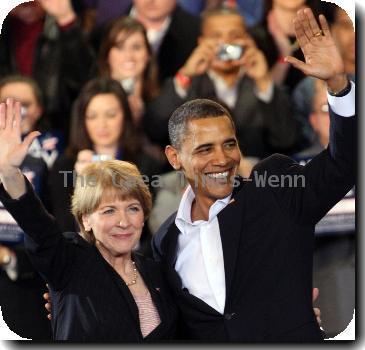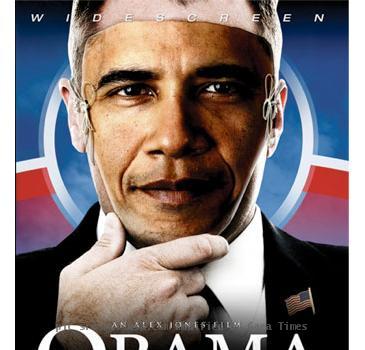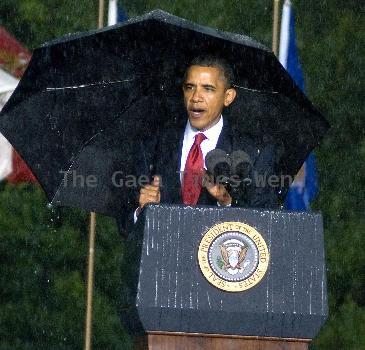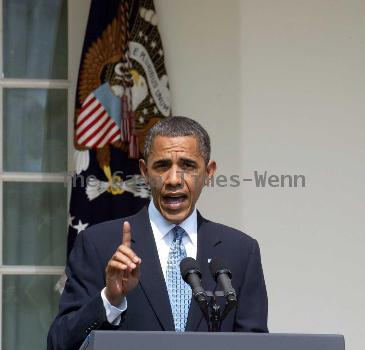August unemployment report may show first rise in jobless rate since this spring
By Christopher S. Rugaber, APThursday, September 2, 2010
Jobs report may show rise in unemployment rate
WASHINGTON — The unemployment rate may be about to rise again.
Economists are bracing for a weak showing in the August employment report, which is scheduled to be released Friday. The private sector is forecast to add a net total of only 41,000 jobs, the fewest since January, which isn’t enough to keep up with population growth. The jobless rate is expected to increase to 9.6 percent from 9.5 percent, the first rise since April.
The anemic economy is causing companies to conserve cash and hold back on hiring. While most economists expect the nation to avoid another recession, growth will likely be so weak for the rest of this year that the jobless rate could move back above 10 percent by early next year.
“Ultimately, businesses will hire if they feel confident there will be revenue growth in the future,” said Julie Coronado, an economist at BNP Paribas. “But we’re growing at a pretty slow pace.”
Overall, total payrolls are forecast to drop by 100,000, because about 115,000 temporary census jobs ended last month.
The weak pace of job creation is raising concerns among economists about whether the economy can keep growing after government programs, such as the homebuyer’s tax credit, ends.
“The idea is that as the stimulus falls away, the private sector is supposed to pick up steam,” said Scott Brown, an economist at Raymond James.
Instead, businesses now face uncertainty about whether tax cuts enacted in 2001 and 2003 will be allowed to expire, Brown noted, which “isn’t helpful.”
But rising unemployment may force Congress to resolve that uncertainty. An increasing number of Democrats are joining congressional Republicans in opposing President Barack Obama’s plans to let tax cuts on upper income earners end.
A jobless rate nearing 10 percent would also raise pressure on the Federal Reserve to do more to jump start the economy. Fed Chairman Ben Bernanke said last week the central bank will take more steps if necessary. But he also said the foundations have already been laid for economic growth to accelerate next year.
There were some positive economic reports Thursday. Figures on unemployment claims, store sales and home-buying contracts all trended in the right direction, allaying fears that the economy is on the brink of another stumble.
For now, companies aren’t resorting to widespread layoffs. New applications for unemployment benefits declined for the second straight week after rising in the previous three to above the half-million mark.
“This is something of a relief, because it suggests that the 504,000 claims number from two weeks ago was a fluke rather than an indication that the trend has suddenly surged higher,” said Ian Shepherdson, chief U.S. economist at High Frequency Economics.
Claims for unemployment aid fell last week by 6,000 to a seasonally adjusted 472,000, the Labor Department said. There would be far fewer claims in a healthy economy. When economic output is growing rapidly and employers are hiring, claims generally drop below 400,000.
Retailers, meanwhile, reported surprisingly strong sales in August compared to a year ago. The International Council of Shopping Centers’ index of 31 major retailers was up 3.2 percent in August, following a 2.8 percent gain in July.
Costco Wholesale Corp. posted a robust gain, boosted by higher gas prices and improved international revenue. Limited Brands Inc. and Macy’s Inc. also reported solid revenue increases. But Target Corp.’s results came in below expectations.
In housing, perhaps the weakest area of the economy, a report from the National Association of Realtors offered some mild optimism. The number of people who signed contracts to buy homes rose in July, though the total remained well below levels last year.
Home sales are at the lowest level in more than a decade, even as mortgage rates plummet. The average 30-year mortgage dropped to 4.32 percent this week, down from 4.36 percent last week, according to mortgage buyer Freddie Mac. That’s the 10th time in the past 11 weeks that rates have hit their have lowest level since Freddie Mac began tracking them in 1971.
Associated Press Writers Martin Crutsinger, Alan Zibel and Anne D’Innocenzio contributed to this report.
Tags: Barack Obama, Labor Economy, North America, United States, Us-economy, Washington







